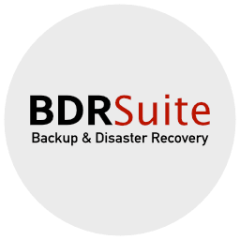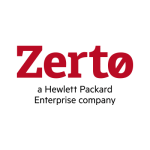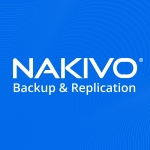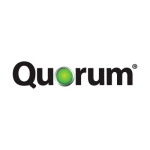What is our primary use case?
We use it for backing up virtual machines.
What is most valuable?
The ability to back up virtual machines is the main reason I use it.
What needs improvement?
Vembu software runs on a Windows Server. The Windows Server has to be connected to the internet so it can connect with Vembu’s servers. It has to connect with Vembu. For some reason, if it doesn't connect, it stops working, and I don't know why on earth they do that. They require it to connect to the internet and connect with Vembu for it to continue to function. If the internet is down or if the server can't reach the internet, it stops working after a few days. That's not great because there are some people who want to do backups but they don't want to have their server accessible on the internet.
I think that's a horrible design, but it's purposely built in that way. It's something that they put in the product, and I don't know why they did that. To me, that’s a terrible design.
If you bought a new car in the year 2525, a Ford, and your car had to have a connection to the Ford dealership or the Ford company and the connection stopped, and then your Ford car was going to stop working in three days, what would you think about that? But that's the way this software works. They did it, and it’s a horrible design. That's what I don't like about it.
For how long have I used the solution?
One to three years.
What do I think about the stability of the solution?
I have never had stability issues with the product.
What do I think about the scalability of the solution?
I haven't had to scale it. It was a small environment so there was no need for me to scale or grow, so I can't really comment as to the scaling capacity.
How are customer service and technical support?
Technical support gets an A-plus.
Which solution did I use previously and why did I switch?
The reason I use Vembu is to back up my virtual machines. You can back up virtual machines manually but Vembu does it automatically. I'd rather have it updated and backed up automatically, without my having to think about it, rather than for me to have to remember to do it every couple of weeks. This is just an automated way to do something that you should do, and that's the reason why I have it.
The previous process I had was to manually back it up, but now it's automatic and I don't have to worry about it.
How was the initial setup?
It was pretty easy to set it up.
When I upgraded my VMware to version 6, Vembu provided me with an update. That was just a continuation of what it did, but at least they provided the update.
What was our ROI?
I didn’t do an ROI spreadsheet because this is a time-saver. You can't sell it on ROI. You can sell it on the fact that it is a time-saving tool.
What's my experience with pricing, setup cost, and licensing?
Vembu is too expensive because they don't really have small-business pricing. This is a matter of personal opinion. They're going to tell you that they have competitive pricing because there are more expensive solutions in the marketplace, but there are better solutions in the marketplace that are more expensive. Their product is a better fit for small businesses, but they don't price it that way.
I think they're losing a lot of money by pricing it too high. If the alternative is to manually do backups and they start charging ridiculous pricing for their products, they're not going to sell that many copies. That's probably why they don't. They've got a good product, but they price themselves out of business. That's my opinion.
If I were running Vembu, I would have a small-business suite that's priced for small business. I would allow customers to buy it without a partner, just go direct and price it for small businesses. They would make a lot more money, but they don't want to do that. They want to try to price it ridiculously. It's their call, it’s their product. They made it.
I know many companies won't bother at that price. They’ll just do it manually. I know because I know the market very well here, in the US. I don't think Vembu is a US company. I don't know where they're from.
Their product does a good job. It's just not meant for large environments, so they’re pricing themselves too high. That's just my opinion. Someone will come in and force them to lower their price. As soon as another company comes in, does an online version of it or it does a cost-effective version, they’re going to be forced to deal with this if they want to sell more licenses.
Which other solutions did I evaluate?
There were other options, but I liked this product. I thought it was easy to use so I took it on. I worked for a partner at the time, and I was going to try to resell it, but I found it to be just too expensive.
The other solution that seems to do better for enterprise customers, the big companies, like Trader Joe's, big retail outlets like that or large grocery stores or hospitals, is Veeam. Veeam costs a little bit more. As expensive as Vembu is, Veeam is actually a little bit more. But because Veaam is meant for larger companies, they sell more instances of it. And by the time you buy the 25-license or 30-license version, it's actually cheaper.
Veeam seems to have much more presence in the marketplace because it's more competitive and scales much larger. I've used Veeam and it's harder to install it, it's harder to get it working. Veeam offers a free version and a small-business solution, but that version doesn't scale well. It's too big. It's like selling a truck to a person who needs a small car. That’s Veeam. Whereas Vembu, they sell a small car, but they want to price it like the huge truck.
What other advice do I have?
Try to negotiate the price. Try to get it to the right price. As a partner, I would try to position it for small and medium-size businesses. I would work with Veeam and say, “Listen. I can't sell it at that price. You're going to have to be more competitive.” As a partner, I would recommend working more with Veeam. It's easy to sell because it's a good product, but I'd be working on the price. It's easy to implement, easy to set up. You can be low a low-tech company and get someone to figure out how to do it easily enough.
The challenge I would have would be getting Vembu to price it competitively. If they aren't willing to, just go with Veeam or tell them to do a manual backup or go with some other solution.
Vembu is a great product. It's priced too high, but it's a good product.
Disclosure: PeerSpot contacted the reviewer to collect the review and to validate authenticity. The reviewer was referred by the vendor, but the review is not subject to editing or approval by the vendor. The reviewer's company has a business relationship with this vendor other than being a customer: Partner.


















Thank you for your feedback.
We are currently working on improving the reports and will be available in our next release - Vembu BDR Suite v5.0 scheduled in December 2020.
For further updates, please get in touch with our team through vembu-support@vembu.com.